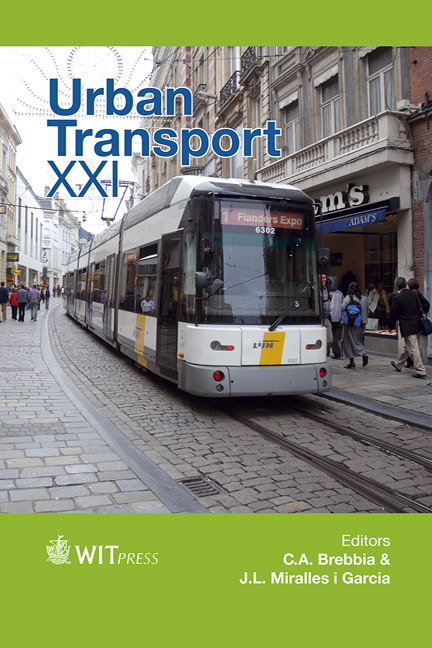Agent-based Negotiation Model For Long-term Carpooling: A Flexible Mechanism For Trip Departure Times
Price
Free (open access)
Transaction
Volume
146
Pages
13
Page Range
461 - 473
Published
2015
Size
480 kb
Paper DOI
10.2495/UT150371
Copyright
WIT Press
Author(s)
I. Hussain, L. Knapen, M. Arsalan Khan, T. Bellemans, D. Janssens, G. Wets
Abstract
In order to commute by carpooling, individuals need to communicate, negotiate and coordinate, and in most cases adapt their daily schedule to enable cooperation. Through negotiation, individuals (agents) can reach complex agreements in an iterative way. The success of negotiation highly depends on the lifestyle factors that influence the departure time decision of the individuals. This paper presents a conceptual design of an agent-based model of a set of candidate carpoolers that serves as a proof of concept and is an extension of a simple negotiation model for carpooling. The proposed model extends the previous one by incorporating a more realistic departure time preference function for each agent by taking; (i) traveling, (ii) socio-economic characteristics, and (iii) time pressure factors into account for a specific activity. From the simulation’s discussions, it is possible to portray the real picture of people’s preferences for selecting the optimal departure time. The Janus (multi-agent) platform is used for simulating the interactions of autonomous agents with their agenda. The future research will mainly focus on incorporating different daily activities in addition to work and home activities.
Keywords
negotiation, departure time, carpooling, commuting, agent technology, Janus platform





